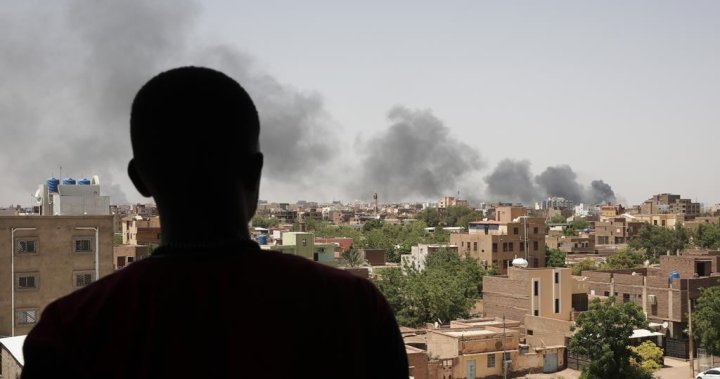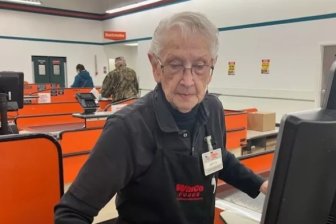Sudan crisis: Canadian special forces on the ground amid evacuation race – National | Globalnews.ca
Canadian military personnel including special forces members are already on the ground in Sudan to assist with evacuation efforts as rival military leaders battle for control of the country, multiple sources tell Global News.
Three sources told Global News the CAF task force includes both regular forces and members of the Canadian Special Operations Forces. It’s not clear when the task force arrived in Sudan, but the group has been planning the extraction of Canadian citizens as the brutal conflict stretches into a second week.
The sources said the special forces members have also been tasked with force protection efforts.
More than 11 days into the crisis in Sudan, roughly 150 Canadians have been evacuated from the country out of 700 who have requested assistance, Global Affairs Minister Mélanie Joly told reporters in Ottawa Wednesday morning.
Joly said that more than 1,800 Canadians in Sudan are registered with the federal government. As of Tuesday night, at least 1,700 had been contacted by the government.

Fighting broke out in Africa’s third largest country on April 15 between the Sudanese Armed Forces, led by Gen. Abdel Fattah Burhan, and a paramilitary organization known as the Rapid Support Forces, led by Gen. Mohamed Hamdan Dagalo.
The fighting has cast a shadow over hopes that Sudan could transition to democracy after decades of dictatorship and civil war.
Since the outbreak of the crisis, western governments – including Canada – have scrambled to evacuate diplomatic staff and nationals hoping to flee the hostilities. An uneasy three-day ceasefire brokered by the United States and Saudi Arabia was reached Monday, but previous attempts to halt the fighting to allow civilians and foreign nationals to flee have failed.
No Canadian military evacuation flights had taken place as of Tuesday night, with Canadians escaping the country on airlifts co-ordinated by Germany, France, the United Arab Emirates and Saudi Arabia. Canadian diplomatic staff have also been evacuated by U.S. personnel.
On Tuesday, Prime Minister Justin Trudeau noted the Canadian Armed Forces do have two ships in the region – HMCS Montreal and MV Asterix – but told reporters the situation is “extremely difficult” and said there were “limited” places to conduct airlifts to get Canadians out.
The evacuation of foreign nationals has stoked fears that the two sides will resume all-out conflict once the evacuations are complete, with many Sudanese attempting to flee during the uneasy truce. The Associated Press reported that bus stations in Khartoum were packed on Tuesday morning, while drivers jacked up prices to transport civilians to Port Sudan or to the border crossing with Egypt.
Sudan also holds one of the largest refugee populations in Africa, according to the United Nations, and years of violent conflict have displaced many within the country’s borders.

According to the latest UN estimates, at least 421 people have been killed and more than 3,700 injured since the fighting began. UN Secretary-General Antonio Guterres warned a “catastrophic conflagration” could cover the region if hostilities don’t cease, and has urged members of the Security Council to “exert maximum leverage” to pull the country “back from the abyss.”
In the House of Commons Tuesday night, both Joly and the Opposition Conservatives acknowledged the need to help the Sudanese people after the immediate crisis passes.
Conservative MP Garnett Genuis, who pushed for the emergency debate, suggested authoritarian regimes like Russia are attempting to take advantage of the crisis – pointing to the presence of the Russia-backed Wagner mercenary group in the country.
“I think the great advantage we have as free democracies, when we are prepared to use it, is that we can always be on the side of the people. That’s what we should be focused on,” Genuis told the House of Commons.
“This is a truly all-hands-on-deck effort, and I encourage all members in this House to recognize the significant work being done,” Joly said, adding that her department was working with the Canadian Armed Forces, the immigration department and the Canada Border Services Agency to help both Canadians trapped in Sudan and Sudanese nationals trapped in Canada.
Joly said she was “very concerned” the conflict could lead to a larger humanitarian crisis in the region.
– with files from Global’s Sean Boynton and The Associated Press
© 2023 Global News, a division of Corus Entertainment Inc.
For all the latest world News Click Here




